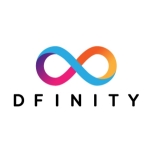● Community vote was initiated on September 15 and approved September 17
● Chain key cryptography will now link the Internet Computer and Bitcoin networks
● Implementation is currently set for Q4 2021
ZURICH–(BUSINESS WIRE)–$BTC #bitcoin–The Internet Computer blockchain launched by the DFINITY Foundation will leverage new cryptography techniques to integrate with the Bitcoin network, resulting in smart contracts that directly operate on bitcoin balances for the first time. Related R&D work performed by DFINITY will be realized after the Internet Computer community passed a Network Nervous System (NNS) proposal on September 17 with 96.55% approval. It was already the 20,586th proposal sent to the NNS since the network launched in May.
Today, the Bitcoin network hosts almost a trillion dollars of value. However, the Bitcoin network does not currently host “Turing-complete” smart contract software of the kind introduced by Ethereum six and a half years after the launch of Bitcoin. Bringing smart contracts to the Bitcoin network will enable developers to build all manner of exciting new systems and Web 3.0 services that process bitcoins and run entirely from the blockchain, creating a foundation for immense new value creation on both networks.
Dominic Williams, Founder and Chief Scientist of the DFINITY Foundation, says: “The Internet Computer is powered by novel “chain key cryptography” that allows it to sign transactions for other blockchains such as Bitcoin. This capability will be used to provide smart contracts hosted on the Internet Computer with native bitcoin addresses via a direct integration of the networks. Internet Computer smart contracts will gain access to bitcoin liquidity, and Bitcoin will gain powerful new smart contract functionality, without the need for insecure and cumbersome trusted bridging services. This will help realize Satoshi’s vision by allowing bitcoin to power a new generation of Web 3.0 internet services.”
This integration is possible because the Internet Computer protocol will be able to securely generate the ECDSA signatures involved in bitcoin transactions on behalf of smart contracts, using chain key cryptography (after the Taproot Bitcoin upgrade in November, Schnorr signatures will also be created). Meanwhile, Internet Computer network nodes will directly consume Bitcoin blocks, to ensure that balance information is always available to smart contracts.
Smart contracts will have associated Bitcoin addresses, and by default will send and receive bitcoins on the Bitcoin blockchain. On the Internet Computer, transaction finality occurs in 2 seconds, while it can take 40 minutes in expectation on Bitcoin. However, it will be possible to use trustless smart contracts on the Internet Computer as bitcoin banks, within which it will be possible to transfer balances within 2 seconds, which can be useful in applications such as DeFi.
Dominic Williams adds: “The Internet Computer is the only blockchain that supports smart contracts that can securely serve interactive web content directly to end users, and that supports the Internet Identity system that enables users to anonymously authenticate themselves to Web 3.0 dapps and services using any device that supports the WebAuthn standard. This means that it will be possible to create a Bitcoin wallet using Internet Computer smart contracts that is directly served from the blockchain into a web browser, which then allows the user to securely, conveniently and anonymously authenticate themselves using, say, the fingerprint sensor on their laptop, or face recognition on their phone, in order to send bitcoins to another user, without need for the key management typically involved in self-hosting crypto.”
About The Internet Computer Blockchain
The Internet Computer is the first public blockchain that:
● Can truly scale to host any volume of smart contracts and related computation and data, making it the first unbounded blockchain
● Runs at web speed by finalizing transactions that update data in 2 seconds and others in milliseconds, making it the fastest blockchain in the world
● Hosts smart contracts that can securely serve interactive web content directly to end users without the need for intermediaries, finally realizing the Web 3.0 vision (on every other blockchain, dapps involve a website that is hosted on a centralized cloud service like Amazon Web Services, which then talks to smart contracts on the backend, requiring trust in the cloud operator, that the account hasn’t been hacked, and so on)
● Runs under the control of a permissionless governance system called the Network Nervous System (NNS), that enables it to rapidly evolve and adapt by exerting the will of a community of tens of thousands of “neuron” holders
● Runs on dedicated hardware, in the form of special “node machines”, which are run by independent “node providers”, from independent data centers and racks, from different geographies and jurisdictions, greatly increasing security, sovereignty and censorship resistance (by comparison, most modern proof-of-stake blockchains are hosted almost exclusively by validator nodes that run on the cloud, raising the risk that the cloud operator might switch them off, or steal their validator keys).
The Internet Computer network was launched by the not-for-profit DFINITY Foundation (DFINITY Stiftung) based in Zürich, and is joined by the not-for-profit Internet Computer Association in Geneva, and many community contributors. Project R&D is pursued by a team of more than 200 people that includes many leading cryptographers and computer science researchers and engineers, working from numerous locations and dedicated research centers around the world. The project is the realization of a multi-year R&D effort, which culminated in the Internet Computer network’s Genesis launch on the 10th May 2021. In the few months since Genesis, the blockchain’s developer community has grown into the hundreds, and the rapidly expanding range of services and dapps they have built have been accruing large numbers of active users, such that arguably it has become the world’s fastest growing blockchain ecosystem. At the time of writing, more than one million Internet Identity anchors have been created, and the blockchain, which is infinitely scalable, has processed more than 200,000,000 blocks – far more than any other blockchain (in just four months).
DFINITY: Twitter Reddit YouTube GitHub DFINITY Developer Center
Contacts
Seamus Conwell
150Bond
seamus.conwell@150bond.com


